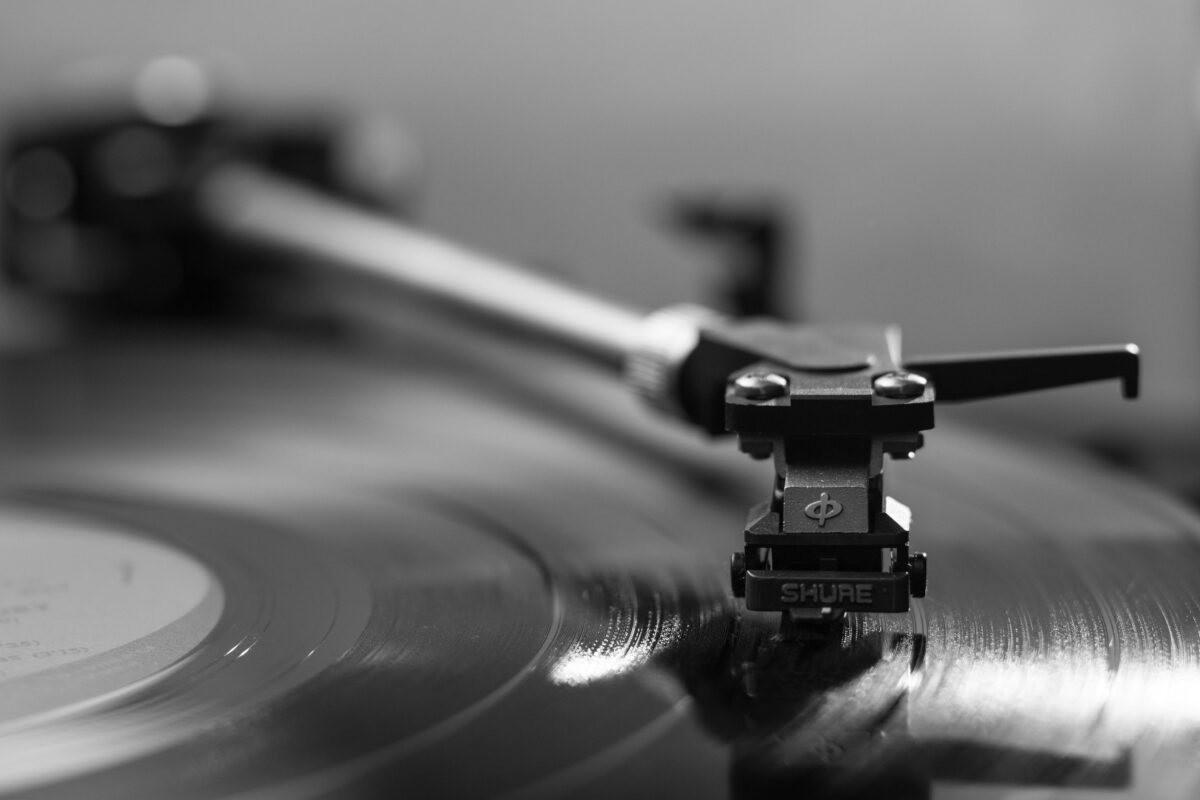
Three summers ago, Grammy Award-winning composer-arranger-bandleader Maria Schneider premiered her darkly dystopian piece “Don’t Be Evil” at the 2017 Newport Jazz Festival. A swirling, foreboding paean to the sheer power and dominance of tech giant Google, it was named for the company’s motto and corporate code of conduct and carried a couple of tongue-in-cheek references to the military bugle call “Taps,” a song usually played at funerals. This was the outspoken artist sounding the alarm, and she ran down a laundry list of Google’s evils to the Newport crowd—addicting kids to its services, controlling our choices by manipulating “search,” gathering and selling data to garner endless power and money—before her award-winning orchestra launched into the heady commissioned work. And with electric guitarist Ben Monder rampaging through the fray of dissonant horns with a distortion-laced barrage of skronking to rival vintage Sonny Sharrock with Pharaoh Sanders, this dramatic highlight of the Maria Schneider Orchestra’s set was as compelling as it was scary.
At the time, “Don’t Be Evil” stood as an uncharacteristically heavy piece in Schneider’s otherwise uplifting oeuvre—just something she had to get off her chest and onto the page. Over time, however, as her writing progressed, themes started to emerge until it became clear that she had a full-blown concept album on her hands. The imposing Data Lords, Schneider’s latest ArtistShare release, is a double CD set —one composed of dark themes and edgy electric tunes representing The Digital World, another containing warmer, uplifting, often whimsical themes representing Our Natural World. And while the seeds of this project may have been planted with the premiering of “Don’t Be Evil” three years earlier at Newport, Schneider explained, “I hadn’t thought about recording it back then. I was just writing music and continued to write new pieces. And then about a year and a half ago I began to envision a double CD that is telling the story of the push and pull of what we all live with now. Once I was conscious of that, it helped me then find my way.”
In Schneider’s “divining rod” process, she writes the music and then lets it guide her to some conclusion. “I just let the writing of music and the sounds lead me and my thoughts and my interpretation of those sounds,” she explained. “And then all of a sudden you realize there’s sort of a theme or a way to tie it together that reveals itself. I can probably count on one hand the number of pieces where I actually set out with an intention to try to create something about something. It almost doesn’t ever exist with me.”
What revealed itself to Schneider along the way was the idea of depicting the dichotomy between dark and light, digital and natural. And while “Don’t Be Evil” and other turbulent, electrified fare like “Data Lords” and the ominous “A World Lost” fit the bill for The Digital World, the gentle, hymn-like ‘Sanzenin,” the sparse and playful “Stone Song,” the warmly lyrical “Look Up,” and the summer tone poem “BlueBird” fit nicely into Our Natural World. Two other songs in the natural collection, the delicate and poignant “Braided Together” and the wistful “The Sun Waited for Me,” were instrumental pieces inspired by poems from the Pulitzer Prize-winning Great Plains poet Ted Kooser. Composing instrumental music based on poems, Schneider explained, is a different realm. “You’re following another expression. The words are guiding you already with the melody, the phrasing of the sentences, the intent behind the words. It’s different than coming up with an idea in space in your own head and saying, ‘Okay, now I’m going to write about this.’ In the end, they are instrumental pieces that I would’ve never written without the poetry. The poems made me write in a way that I wouldn’t write otherwise too.”
Schneider explained that her walk on the dark side in The Digital World portion of Data Lords was inspired by her collaboration with David Bowie in 2015 on “Sue (Or in a Season of Crime),” which later resurfaced in a tougher, pared down version on Bowie’s final album, Blackstar. “Working with David made me realize that dark can also be fun. And I think that quality came into play on this album too. I wasn’t scared to go into that dark place on intense things like ‘Don’t Be Evil’ and ‘Data Lords’ because I sort of reveled in the fun of it. There’s a little bit of humor or sarcasm in those pieces that I also enjoyed. I didn’t sit here seething as I wrote this music. As a matter of fact, I had more fun than I think I’ve ever had because it felt like such a release to put that in the music.”






















